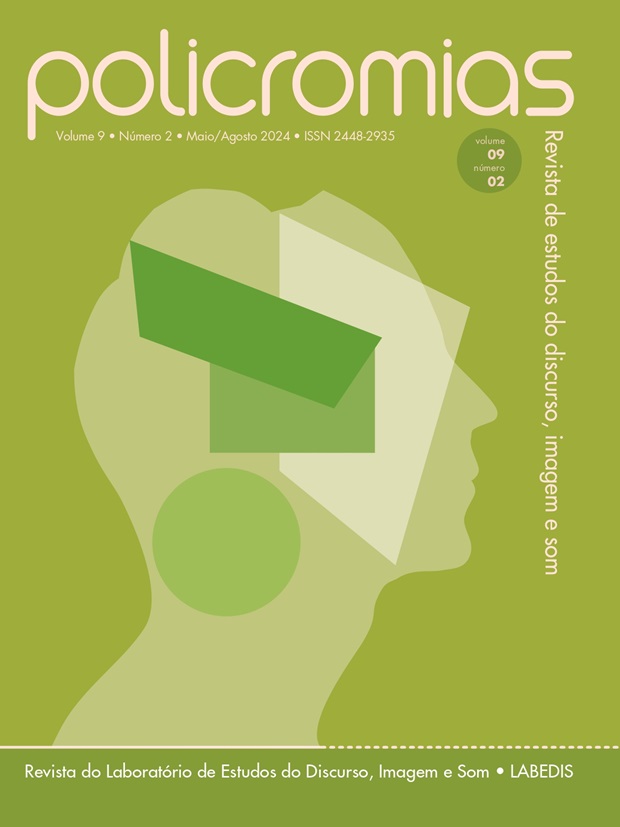“FOR LINGUISTIC EDUCATION TO BE MORE REALISTIC, DISCARD OBSOLETE RULES THAT ARE NO LONGER PART OF SPEAKERS' LINGUISTIC INTUITION”
INTERVIEW WITH MARCOS BAGNO
DOI:
https://doi.org/10.61358/policromias.2024.v9n2.65200Abstract
Among students of Letters, it is not uncommon to dream of dedicating oneself to writing, especially literary writing, and being able to turn this activity into a paid profession. Marcos Bagno is undoubtedly one of the most distinguished individuals in this field for his written production: author, co-author, and/or editor of more than fifty books, including theoretical works, popular science books, and literary works; and translator of at least 120 books from Spanish, French, Italian, and English into Portuguese, he is possibly the Brazilian linguist whose works are the most widely disseminated and read in specialized circles.
He holds a Bachelor’s degree in Portuguese Language from the Federal University of Pernambuco (1991), a Master’s degree in Linguistics from the Federal University of Pernambuco (1995), and a Ph.D. in Philology and Portuguese Language from the University of São Paulo (2000). He currently serves as an Associate Professor at the Institute of Letters at the University of Brasília (UnB). According to his curriculum on the Lattes Platform, he “[h]as experience in the field of Linguistics, with an emphasis on Translation, Sociolinguistics, and teaching, working mainly on the following topics: French/Portuguese translation practice, Portuguese teaching, sociology of language, language policy, traditional grammar, and Brazilian Portuguese.” More recently, he has also started to focus on linguistic historiography.
Downloads
Published
Issue
Section
License
Copyright (c) 2024 Policromias - Revista de Estudos do Discurso, Imagem e Som

This work is licensed under a Creative Commons Attribution-NonCommercial 4.0 International License.
Os(as) autores(as) dos trabalhos aprovados concordam em ceder à Policromias os direitos não exclusivos de publicação, permanecendo livres para disponibilizar seus textos em outros meios desde que mencionada a publicação da primeira versão na revista. Autorizam, ainda, a revista a ceder seu conteúdo para reprodução em indexadores, repositórios e similares. É vedada a tradução para outro idioma sem a autorização escrita do Editor, ouvida a Comissão Editorial. A responsabilidade do conteúdo dos artigos é exclusiva dos autores.
